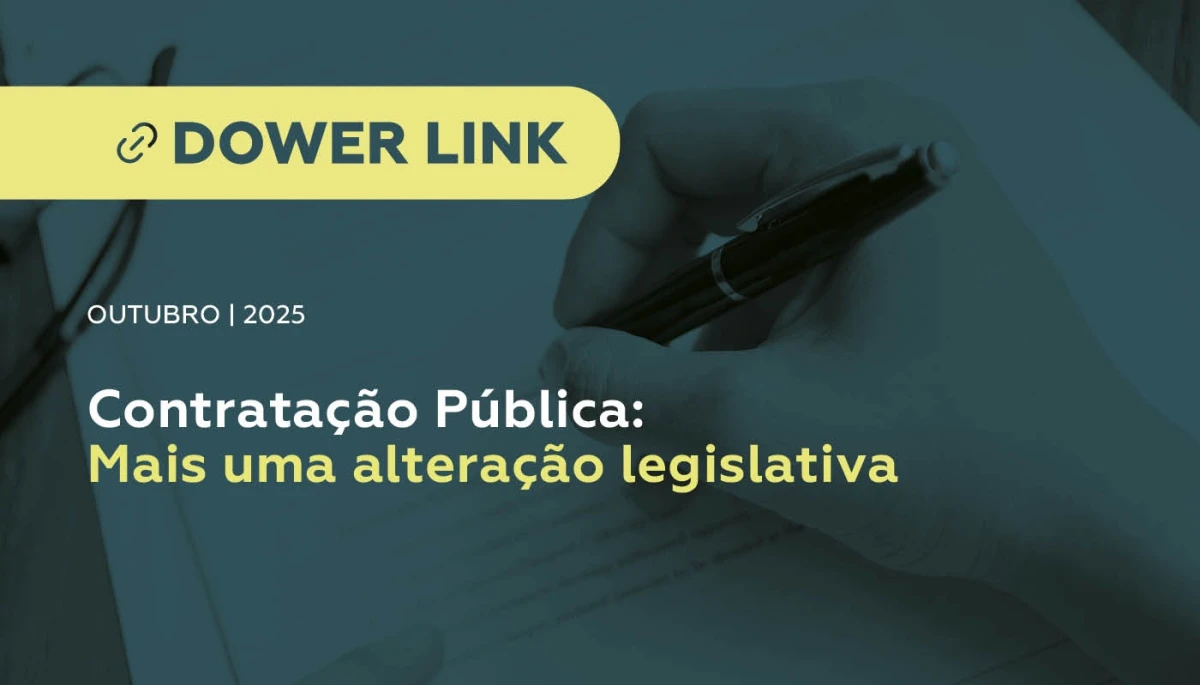
Public Procurement: Another Legislative Amendment

Upon reviewing the 2024 Annual Public Procurement Report, it is once again evident—continuing a trend observed for years—the fundamental importance of public procurement, particularly regarding its “Weight in the Economy”, as stated in section 3.
The report notes that “In 2024, the value of contracts reported on the BASE portal represented 6.46% of GDP, an indicator that measures aggregate productive activity. Compared to the previous year, this represents an increase of 0.74 percentage points, thus maintaining the growth trend already observed in 2023.”
In procedural terms, the situation also remains largely non-competitive, given the “prevalence of the direct award procedure, followed by the prior consultation procedure: 112,024 direct awards and 41,321 prior consultations, which together account for 76% of all procedures.”
These facts, recalled here, illustrate that the problem of public procurement lies not so much in the law itself, but in practice—where it often diverges from it—despite the vital importance of procurement for meeting collective needs, ensuring good administration, and managing public funds effectively (for that is what public money truly is).
Therefore, lawmakers should be required not to add “more confusion”, which would mean refraining from constantly amending the main legislation every year, as this leads to obvious uncertainty and legal insecurity for those who apply it daily. It is well known that another revision of the Code is approaching, following amendments to the EU Public Procurement Directives.
However, this has not been the case since 2008—the year the Public Contracts Code (PCC) was enacted—which has now undergone its 15th amendment, averaging nearly one per year. Indeed, another legal instrument has just been published: Decree-Law No. 112/2025 of 23 October, which further relaxes public procurement rules by amending Law No. 30/2021 of 21 May (special measures) and the Public Contracts Code (PCC). And more amendments are promised...
Let us focus on those now published.
Amendments to the PCC
- Article 43.º
It is worth recalling that the legislator had long sought to normalise, within public works contracts, the design-and-build model (which was exceptional under paragraph 3 of Article 43 of the PCC), contrary to the position of several stakeholders, beginning with the Court of Auditors. This goal has finally been achieved.
Article 43 of the PCC has been amended so that contracting authorities may now resort to the design-and-build model not only in exceptional and duly justified cases, but whenever, based on their discretion and in light of public interests at stake, they deem this contractual form appropriate.
Accordingly, the contracting authority may include the preparation of the detailed design as part of the contract’s execution. In such cases, the tender specifications should contain only a preliminary programme (see Ordinance No. 255/2023 of 7 August), and the base price defined therein must separately specify the maximum amounts the authority is willing to pay for the design and construction components of the work.
As a result, Article 2-A of Law No. 30/2021 (introduced by Decree-Law No. 78/2022 of 7 November) is repealed (in 2025), meaning that design-and-build will no longer be a special measure, but rather an ordinary feature of the PCC.
Amendments to the Special Measures (Law No. 30/2021)
At the same time, it is considered that the effects of this design-and-build measure can be enhanced by exceptionally increasing the thresholds for using the prior consultation and direct award procedures in contracts aimed at promoting public or controlled-cost housing.
Thus, the special public procurement measures regarding housing contracts, provided for in Article 3 of Law No. 30/2021 of 21 May, are amended to allow, until 31 December 2026, the use of specific simplified procedures:
- Simplified open or restricted tendering, when the contract value is below the EU thresholds set in Article 474 of the PCC;
- Simplified prior consultation (inviting at least five entities) when the contract value is both below the Article 474 thresholds and under €1,000,000 (in practice, this allows simplified prior consultation for works up to €1 million);
- Simplified direct award (see Article 128 of the PCC) up to €15,000 inclusive;
- Direct award (under Articles 112 to 127 of the PCC):
- up to €60,000 (inclusive) for works or concession contracts;
- up to €30,000 (inclusive) for contracts for the lease or acquisition of goods/services;
- up to €65,000 (inclusive) for other contracts.
Thus, new legislative amendments are introduced, applicable to the formation of public contracts initiated after their entry into force—that is, when the decision to contract (see Article 36(1) of the PCC) is made on or after 28 October 2025.




